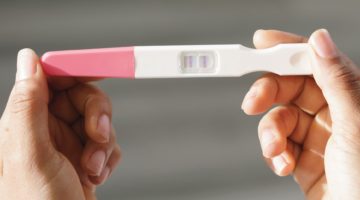By LINDA A. JOHNSON
AP Business Writer
Revenue from important new medicines for various cancers, hepatitis C and more helped top U.S. drugmakers weather unfavorable currency exchange rates and other challenges. Pfizer Inc., Merck & Co. and Bristol-Myers Squibb Co., which reported first-quarter results Tuesday, all derive at least half their revenue from selling products overseas. Because they’re purchased in local currencies, the strong dollar is depressing the sales’ value.
Some highlights from the reports:
PFIZER
The world’s second-biggest drugmaker increased net income 2 percent to $2.4 billion, squeaking past Wall Street’s expectations of adjusted profit of 50 cents per share by a penny.
Pfizer cut its 2015 earnings-per-share forecast by a nickel, to between $1.95 and $2.05, in the face of two fierce headwinds. Besides the strong dollar, it’s still dealing with generic competition slashing sales of multibillion-dollar drugs that have lost patent protection. Most recently, painkiller Celebrex just got generic competition in the U.S.
New York-based Pfizer said those two factors will reduce 2015 revenue by a combined $6.8 billion. This quarter, its revenue fell 4 percent to $10.86 billion.
However, results were buoyed by continued cost-cutting and revenue from important new drugs. Those include arthritis pill Xeljanz, liver cancer drug Xalkori and Ibrance, for women with a common breast cancer subtype, plus Pfizer’s share of profits from clot-preventing medicine Eliquis, a blockbuster it markets with partner Bristol-Myers.
The world’s best-selling vaccine ever, Prevnar for preventing pneumonia and other infections, jumped 41 percent to $1.31 billion after recent approval of Prevnar 13, which blocks more strains of the bacteria.
The company said it plans to soon launch or apply for approval of some other new drugs and should close its $17 billion purchase of injectable and biologic drugmaker Hospira Inc. by year’s end. That will boost revenue further.
MERCK
The world’s fifth-biggest drugmaker said net income plummeted 44 percent to $953 million, or 33 cents per share. That was expected, because it sold its big consumer health business, saw most of its hepatitis C franchise wiped out by rivals’ newer, more-effective drugs and saw the strong dollar cut revenue by 5 percent.
Nevertheless, Merck posted a 10-cent beat over Wall Street expectations with its adjusted profit of 85 cents per share and nudged up its 2015 adjusted profit forecast to a range of $3.35 to $3.48 per share.
Those factors, plus strong launches for new drugs and higher sales for key older ones, helped drive its shares up by a rare 5 percent.
The new drugs include immune-boosting melanoma drug Keytruda, which is being tested in many other types of cancer, and pet med Bravecto, a chewable tablet for killing fleas and ticks.
Prescription drug sales totaled $8.27 billion, led by diabetes pills Januvia and Janumet, up 4 percent to $1.39 billion. Cholesterol pills Zetia and Vytorin were down 9 percent to $887 million, mainly due to generic competition in Canada.
Sales of most of most vaccines were up strongly, and sales to hospitals were bolstered by Merck’s January purchase of antibiotic maker Cubist.
BRISTOL-MYERS SQUIBB
The world’s 14th-biggest drugmaker posted a 27 percent jump in first-quarter profit, to $1.19 billion, or 71 cents per share, crushing analysts’ expectations of 50 cents. Reduced spending on everything but research helped the bottom line, along with strong sales of most new and key medicines.
Sales jumped 6 percent to $4.04 billion, beating forecasts of $3.81 billion. The revenue held up in spite of the sale of most of its diabetes drug business and the strong dollar, which together reduced revenue by 17 percent.
All that should have brought a bump in its share price. Instead, investors were disappointed by the mere $40 million in sales of Bristol’s newest melanoma drug, Opdivo, part of the hot new class of immunotherapy drugs that help the immune system spot and attack cancer cells. The company’s slightly older immunotherapy drug, Yervoy, posted $325 million in sales, while sales of clot-preventer Eliquis more than tripled to $355 million and the new hepatitis C franchise posted a combined $264 million.
Still, Wall Street sent shares down about 1 percent _ and that was before U.S. regulators late Tuesday approved the first generic version of the New York company’s top seller, $2 billion-a-year psychiatric treatment Abilify.













No Comment